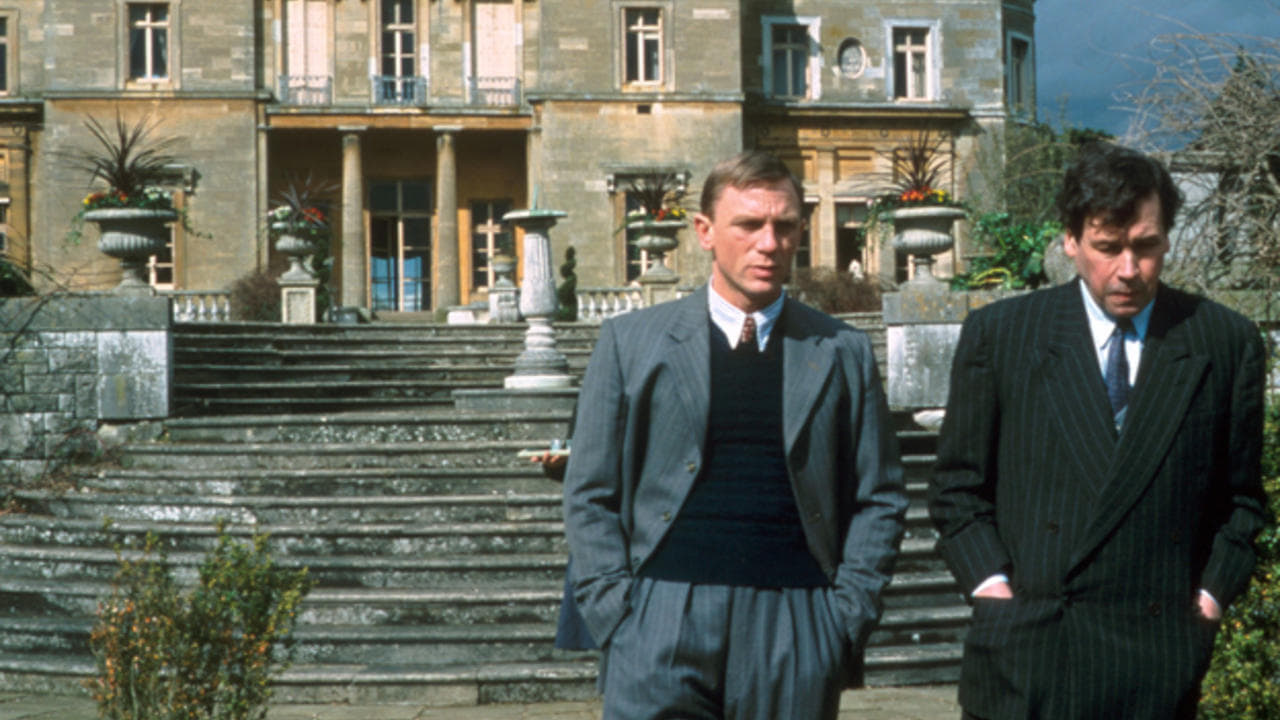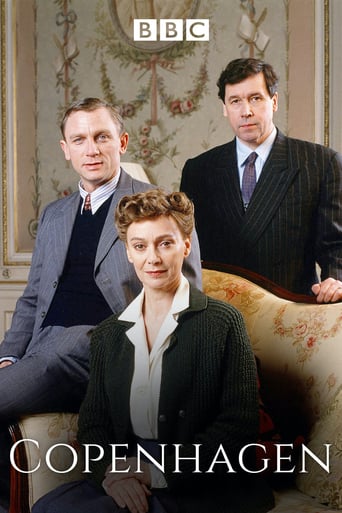

The greatest movie ever!
... View MorePurely Joyful Movie!
... View MoreBrilliant and touching
... View MoreIt is a whirlwind of delight --- attractive actors, stunning couture, spectacular sets and outrageous parties.
... View MoreThis is a fascinating character study, it raises so many questions about Heisenberg, and questions his motives for research, self indulgence, search for greatness, or simply because he was subjugated by Hitler.As a film it kept my attention from start to finish, it's a truly fascinating story, so incredibly interesting. The three lead performances from Craig, Rea and Annis are incredible, they made the film so believable, each so truthful. The way the story is told is very different, almost unique.After watching this you can't help but ask the question, can you imagine what would have happened if.....I loved it, would love to see it on the stage one day. This is an exceptional film. 9/10
... View MoreI'm reviewing the TV adaptation here; other reviewers have pointed out that it differs from the play, and I can't comment on that.The structure of the play, which revisits an event multiple times without ever giving a "final" version, is clever and involving. The setting is stagey but convincing enough and at the play's heart is a fascinating and very serious moral dilemma.The dialogue, however, is toe-curlingly pretentious. We're treated to several conversations in which characters helpfully explain to each other things they already know. Worse, we get interminable voiceovers setting out everything for the audience in minute detail, even during scenes that seem to be intended to build dramatic tension.Portentious references to "uncertainty" and "complementarity" abound, but tell us little about either the science or the characters. The only moment when you're at risk of being exposed to any physics is a rather juvenile explanation of the Heisenberg Uncertainty Principle. Unfortunately this seems to completely miss the point it's trying to illustrate, perhaps because Frayn or the director is worried about scaring the audience or perhaps because one or both of them failed to understand it.There are things to like here, mostly about the large-scale structure and the subject-matter, both of which are genuinely interesting. All three actors do a decent job with what they have to work with, too. That was enough to get me to the end, but only just.
... View MoreThis film treatment of a play by Michael Frayne has an odd structure; essentially there are three attempts to tell the same story, wrapped around a subsequent ghostly appearance by the protagonists, Nils Bohr, his wife Margrethe and Werner Heisenberg. In this correspondent's education, Bohr, of the Bohr atom, and Heisenberg of quantum mechanics and the uncertainty principle, were two of the giants of 20th century theoretical physics. The story revolves round Heisenberg's mysterious visit to his old friend and mentor Bohr in September 1941 in German occupied Copenhagen. Was Heisenberg, no Nazi but a patriotic German, trying to find out how far the Allies had got with nuclear fission? Was he trying to use Bohr to persuade the German High Command that building a fission bomb was too difficult? Did he just have the hots for Margrethe (herself a physicist)?In a way, the answer doesn't matter much; shall we say the ending is cloaked in uncertainty, but the acting is very fine and some of the dialogue sparkling. However, it is also a bit dull at times. For some reason Mr and Mrs Bohr are shown as inhabiting a vast belle epoc mansion (without a single servant) and the cast and camera wander round the building and its formal gardens in a fairly aimless fashion. Even as a film it would have worked with a just a couple of sets.Ironies abound in this story. The Nazis allowed Jewish scientists to work in the theoretical physics area thinking it less important than applied physics, so that by the time they were finally expelled to Britain and the US the same Jewish scientists had made theoretical breakthroughs which proved vital in the development of the atomic bomb. As Bohr points out ruefully, Heisenberg, working for the Nazis, never did anything to kill anybody, whereas he, Bohr, spent two years at Los Alamos after his escape from Denmark in 1943 helping out with the Manhattan Project. Yet it was Heisenberg who had to convince the world after the war that he was not a Nazi collaborator. On a personal level, Bohr and Heisenberg had a relationship going back 20 years, when Heisenberg, as a young student had had the termerity to challenge the (then) recent Nobel prize-winner's mathematics. Two people as smart as they were with egos to match were unlikely to have a smooth friendship, and so it turns out. Margarethe who apparently assisted Bohr with his work, is a bit of a spare wheel here, though Francesca Annis has such a good presence you hardly notice the fact. Stephen Rea as Bohr is wonderfully tired and world weary and Daniel Craig is very much the younger eager beaver as Heisenberg. I've not seen the play, but I suspect this property would work better on stage. Opening out the scenery is a distraction here. Still, as Bohr is wont to say, the ideas are `interesting', even if the questions posed can't really be answered.
... View MoreThis is well done and thoroughly enjoyable portrayal of the moral hesitation and dissembling that go hand and hand with Heisenberg and his efforts with respect to the bomb. It is well acted with informative and intelligent dialogue that brings two of the leading scientists of the 20th century to life while examining all facets of the issues surrounding Heisenberg's visit to Copenhagen and the consequences of his efforts to develop a bomb for Nazi Germany.
... View More